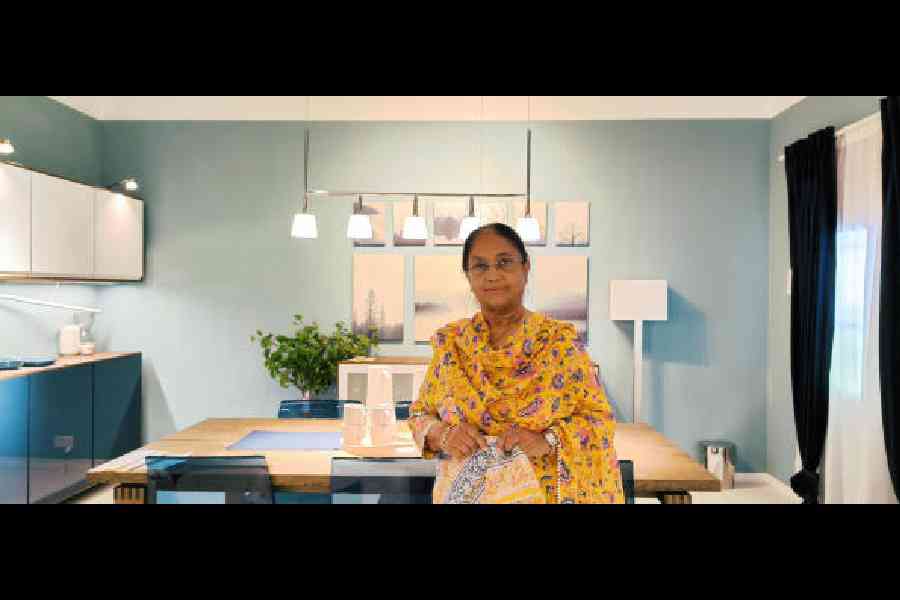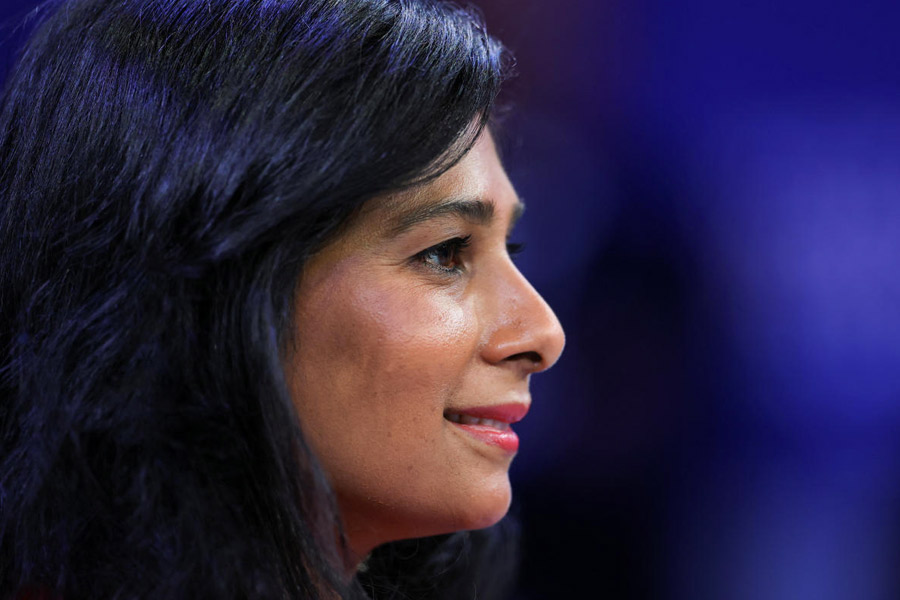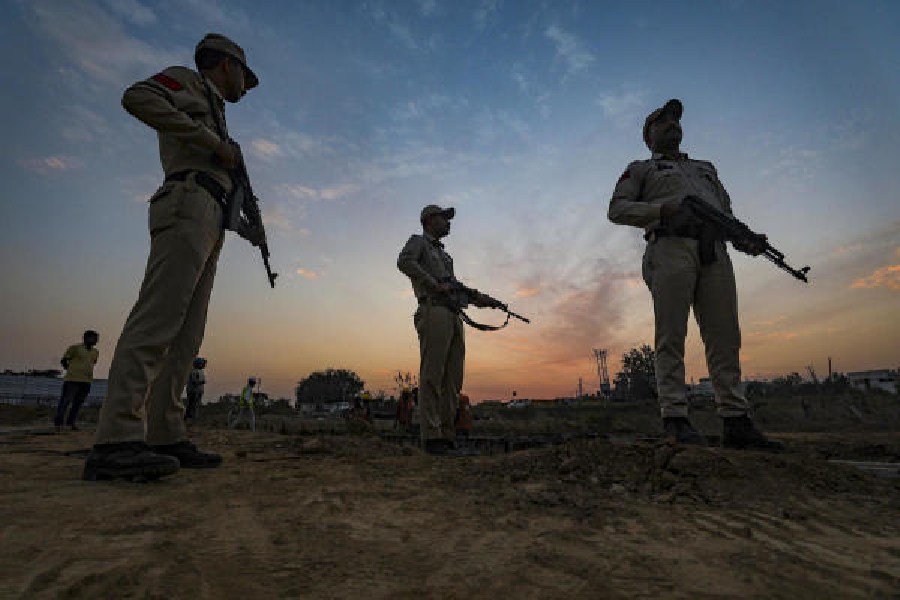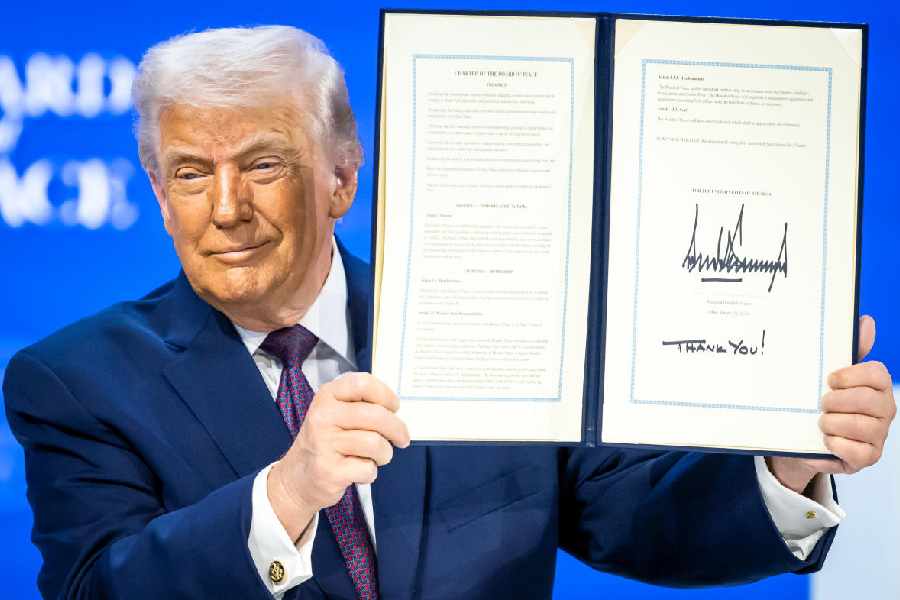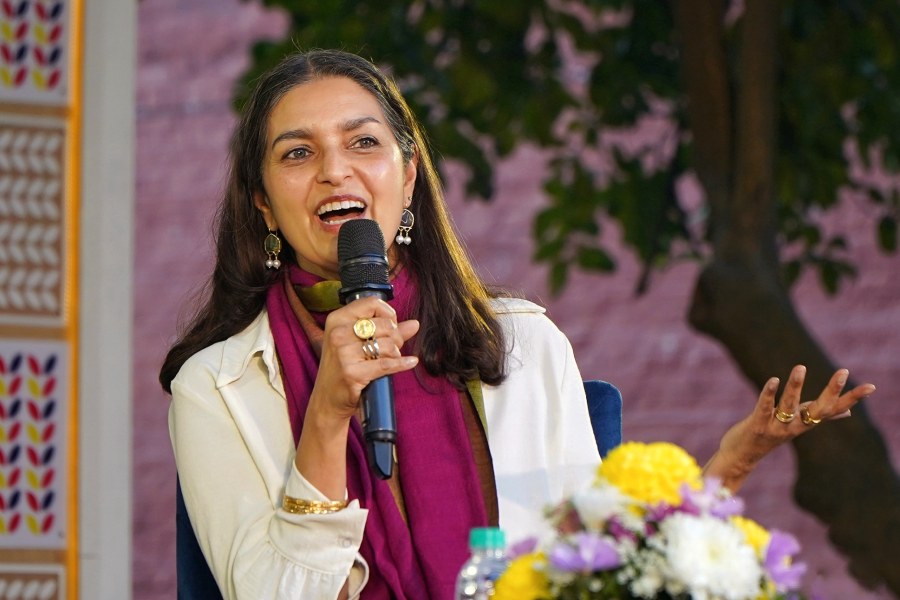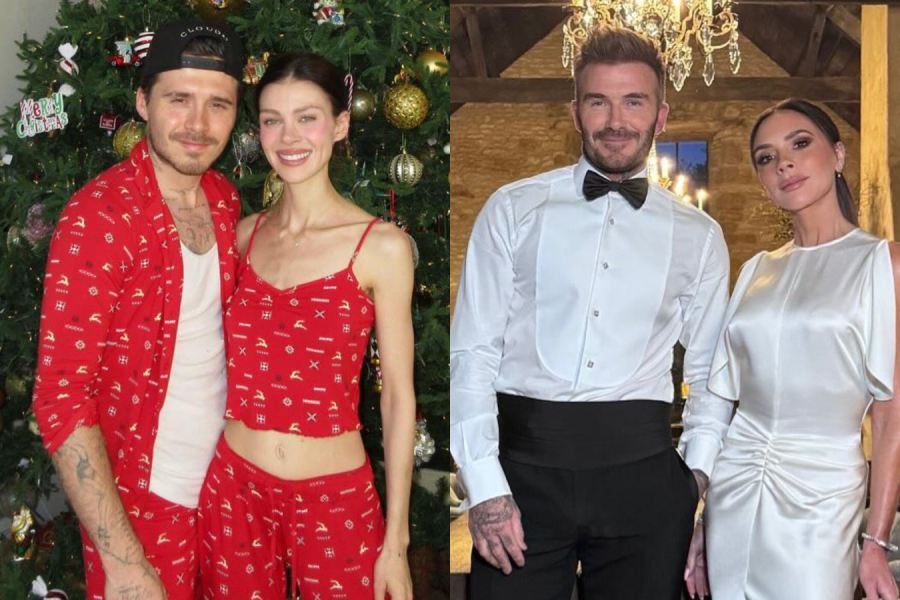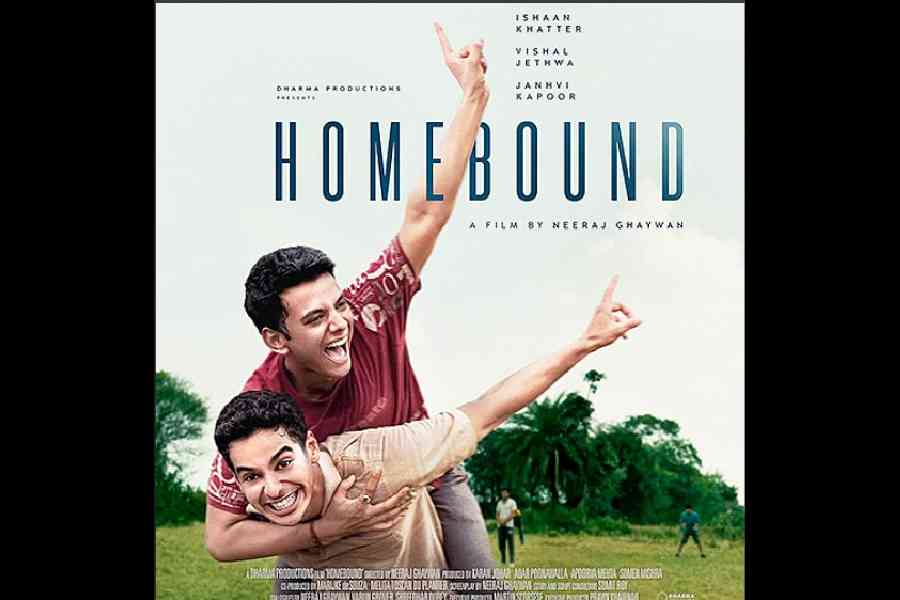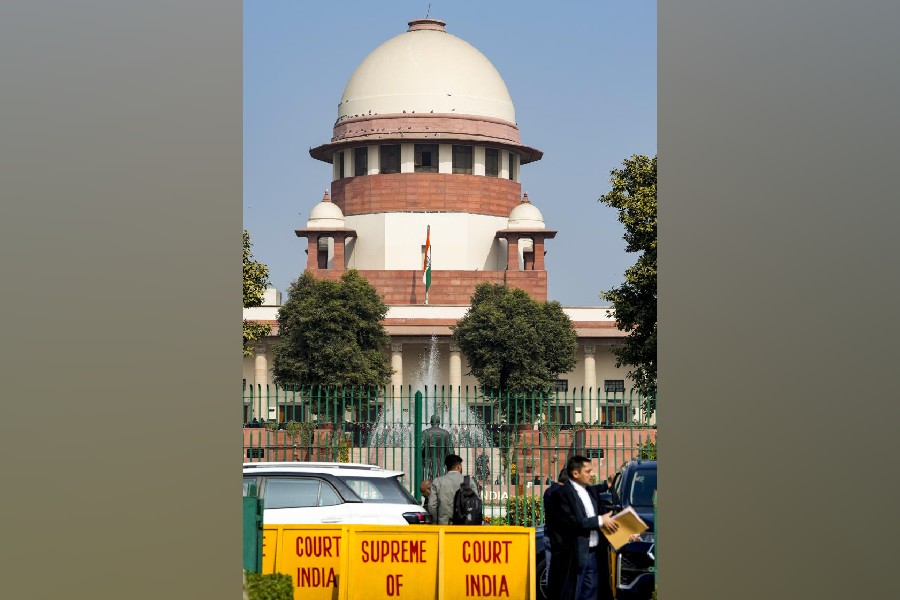Banu Mushtaq might script history at the upcoming edition of The International Booker Prize. Her book, Heart Lamp, is in the fray with five other titles, and if she wins the top spot, she will be the first Kannada author and first Muslim woman from India to win big at one of the most prestigious literary awards in the world. “At first, I was nervous because I never expected it. Now, I am excited and thrilled. I am looking forward to representing India. This is the first time any Kannada book has entered the International Booker Prize,” said Mushtaq, an activist and lawyer, with the excitement palpable in her voice.
Heart Lamp — translated into English by Deepa Bhasthi — packs in a dozen short stories, each picking up narratives from her community in South India, piercing the heart like a sharp arrow and breaking it into pieces at the end of the story. Each contemporary tale, heavily sad in tone, presents the known and familiar stories of women in the community and society. However, the beauty of her story is the universal truth that it tells with honesty. In an instant, it breaks the boundary of South India and a particular community and gender and becomes the story of all women across the globe.
In a tete-a-tete Mushtaq, whose stories are an extension of her social activism, the Karnataka Sahitya Academy and the Dana Chintamani Attimabbe awardee shares the darkest moment of her life and her lifelong mission of lighting up lives like her Heart Lamp. Excerpts.
Heart Lamp is being read, reread and evaluated by a well-read and critically sharp jury. How does it feel that the stories are reaching a global audience?
It is quite exciting. The jury is giving their views, endorsing and repeatedly telling that a new world has opened to them. Also, though the stories are about the Dakhani Urdu-speaking people, and it is the Muslim women who are central to it, it applies to all women around the world. You take any place and the women are subjected to the same type of affliction and abomination. It is not about caste, creed, religion or other orders. And I think that is the reason why people are identifying with these stories. Also, most importantly, these stories are not third-person accounts; it is in first person, and the next person who is in the system is recording these events. That’s why it is more relevant.
Heart Lamp is has 12 stories that have been written by you since 1990. What made you choose the medium for your stories?
Though I have written in almost all the genres of literature — poetry, essays, I even worked as a journalist and translated reports from Urdu and Kannada — all these genres have different types of writing. I have written these short stories over many decades, and it is not just one collection but six collections that have been published till now. So, from 1990 till now, there are a total of 65-plus stories in those collections.
I love short stories very much. Its craftsmanship is overwhelming. One should be highly talented to craft a short story. There should be sensitivity. In my short stories, there will always be poetic lines, symbolism will be there too. And all of it has to be done using minimal words, as the canvas is not big. In a small canvas, you have to draw a brilliant world, and you have to bring the world into it. It is a challenge, and I like taking up that challenge.
While we expected the stories to be inspired from society, it was surprising to know that you had a Mehrun moment, from the story Heart Lamp. Also, do we see you in Zulekha Begum’s character in Black Cobra?
At the time when Mehrun poured kerosene on herself and I had poured some white petrol on me, I was neither an activist nor an advocate, and nor was I a writer. It was about three years after my marriage. I had given birth to my first child, and I had postpartum depression that I can identify now, but people will not diagnose it. I was happy with my husband, but I was not happy with the restrictions put on me. Outside life was restricted to me. I was only a graduate at that time and was not allowed to do further studies or indulge in social activities. I was suffering. I wanted to be most active; I wanted to be creative; I wanted to write. Nobody restricted me from writing, but the environment was not conducive to letting the creative flow of my pen. And if there is no subject, if there is nothing in your mind, if nothing grows in your heart, then how can you write? That was what was troubling me, haunting me. I thought don’t I have any other role to play beyond being mother and wife? That was a very weak moment. My husband saved me and the minute I realised it, I felt very sorry.
I don’t face this Mehrun moment every day in my life. It was only once. And that has finished long back. In Black Cobra, there is a counsellor, Zulekha Begum, who guides Aashraf to reclaim her rights and I play Zulekha every day now.
While your plots are about Muslim women and Dalits from South India, the boundaries blur in a lot of stories. For instance, in Stone Slabs for Shaista Mahal, High Heeled Shoe and even A Decision of the Heart, there is a universality.
In my stories, there are certain Muslim traditions, names and occasions, but if you think from the story’s perspective, it is applicable to the entire world. It can be applied to anywhere, any place, any religion or any woman of the world. Universality is there.
Women have been central to your stories. You are also a lawyer and activist and have been part of Bandya Sahitya movement. Tell me about your insights into gender issues.
In our society and in our domestic affairs, politics starts from the home. It grows into society and further into the real politics of power grabbing; it extends to everywhere. But when the question of gender arises, it is only patriarchy which controls everything. Even the relationship, the emotionality of a woman, the dress, her talking style, her behaviour, how she has to speak, how she has to walk… everything is controlled as if she were an animal in a circus. There will be a hunter, always, and there will be a man behind it, controlling everything.
From the beginning, I refused to obey them. I had my own way of thinking. My father was an educated person who was working as a senior health inspector. And in our family, there were eight children, I being the eldest, followed by five girls and two boys. People would pass comments, and it confused me at times. But one thing I did was I never surrendered to any of these patriarchal values. And I never allowed my sisters to bow before these patriarchal norms. I saw to it. I graduated and then got married. So did all my sisters and they, too, continued their studies after marriage like I did. We had our individuality and the male members in our family respected that. But it is not the case with all the other women. There are many cases of women succumbing to domestic pressure. That’s why gender is a reality. Gender is a tool of discrimination. Gender is where you can make the feminine subordinate to the masculine.
How was it working with Deepa Bhasthi, who translated Heart Lamp?
It was a pleasant experience because she is from a neighbouring district and we must be (living) 100-120km apart. Her grasp of the language is great. Translation is not an easy thing. If you don’t bring out the whole essence of the story or poem, then it will not be a good translation. Deepa has put all her efforts and time, and gave her 100 per cent. I appreciate her work.
Since you are socially so active, being an activist and a lawyer, how do you manage to find the time to write?
I have three daughters. They are all married now and, you know, the children of working women mature earlier. All three girls, before their wedding, shared almost all my responsibilities. All of them are advocates now, with the eldest being a gold medallist in the University of Mysore. Also, my husband was very supportive. He doesn’t like me attending to household chores, so he provided me with house help and a cook from the day we got married. He never ordered me to cook anything for him or the family. This gave me a lot of time for writing and for all the other things that I wanted to do. When I see so many things, as an activist, I cannot simply sit back and say, ‘Okay, life is like that, it happens’. It pains me to see women suffering. I want to be a light in the thousands of lives.
With the global attention, do you want to keep writing similar stories?
After Babri Masjid’s demolition, my writing style and subjects have changed. Earlier, I used to challenge the patriarchy in a Muslim environment. Now, my short stories address communal hatred and fake news. Whether you call it a local issue or a global issue, both are true.

